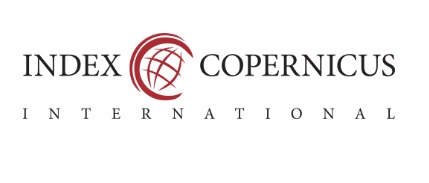Gerontology concept: Toward ego integrity through Taman Pendidikan Al-Quran (TPA) in order to second demographic bonus 2035
Abstract
Aim: To prepare for the demographic windfall of 2035, this study seeks to understand how Taman Pendidikan Al-Qur’an (TPA) contributes to developing strong identities among the elderly. For the elderly, TPA is a tool for achieving ego integrity. Learning to recite the Quran while upholding Islamic principles is known as TPA.
Methodology: This research, which employs qualitative methods such as interviews and observations, examines the experiences of three elderly female victims of the Mount Merapi eruption in Yogyakarta, which is currently being monitored by the TPA. As a result, we can state the following as our "findings:" The results show that TPA helped the elderly maintain their sense of self-worth. This study’s findings will help the elderly achieve TPA ego integrity. The elderly who can put aside their pride and contribute meaningfully to their communities will help the government reap the benefits of the demographic dividend.
Novelty/Implications: The results are helpful because elderly people with strong senses of self-worth can contribute to government efforts to deal with the demographic dividend by helping to maintain economic stability and social cohesion in their communities.
References
Dewi, S. R. 2012. Text Book of Nursing Gerontik. Yogyakarta, Indonesia: Deepublish.
Feist, J., and Feist, G. J. 2014. Theory of Personality. New York, NY: McGraw-Hill.
Haryanto, J. T. 2015. “Elderly Population and Second Demographic Bonus.” Retrieved September 25, 2016 (https://goo.gl/ILmDYz).
Idrus, M. 2007. Research Methods of Social Sciences. Yogyakarta, Indonesia: UII Press.
Indriana, Y., Desiningrum, D. R., and Kristiana, I. F. 2011. “Religiosity, Presence of the Pair and Social Welfare on Seniors Patronage PMI Semarang Branch.” Jurnal Psikologi Undip 10(2): 184-193.
Jati, W. R. 2015. “Bonus Demographics as Economic Growth Engine: Window of Opportunity or Window Disaster in Indonesia.” Populasi 23(1): 1-19.
Konadi, W., and Iba, Z. 2011. “Capital Demographic Bonus Build a Healthy and Dignified Nation.” Unimus Science Magazine, Variasi 2(6): 18-23.
Papalia, D. E., Olds, S. W., and Feldman, R. D. 2008. Human Development. Jakarta, Indonesia: Salemba Humanika.
Santrock, J. W. 2012. Life-Span Development. Jakarta, Indonesia: Erlangga.
Stiabudhi, T., and Hardywinoto. 2005. Gerontology Guide a Review of The Various Aspects. Jakarta, Indonesia: PT Gramedia Pustaka.
Sulandari, S., Martyastanti, D., and Mutaqwarohmah, R. 2009. “Forms Productivity Elderly Forms.” Jurnal Ilmiah Berkala Psikolog 11(1): 58-68.
Yusuf, Y. 2007. “The Influence of Aerobic Exercise to Fitness and Immune Response in Aging.” Wjaya Kusuma 1(2): 21-25.

This work is licensed under a Creative Commons Attribution-NonCommercial 4.0 International License.












.png)










